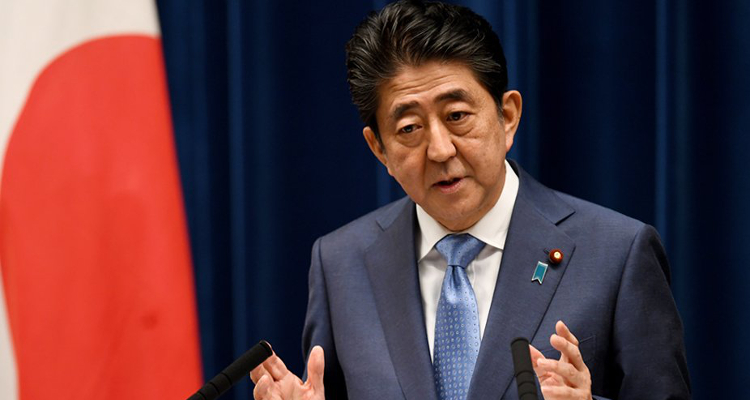In Japan, the ruling coalition government of Prime Minister Shinzo Abe (pictured) has reportedly agreed on the final wording of the casino-legalizing Integrated Resort Implementation Bill and now hopes to have the legislation passed by the 465-seat House of Representatives in advance of a June 20 deadline.
According to a report from the Kyodo News non-profit cooperative news service, Abe hopes that legalizing casinos will help his nation attract more overseas visitors while boosting the economies of regions outside of Tokyo.
Although most casino gambling is currently illegal in Japan, Abe’s Liberal Democratic political party with the support of its allies controversially ratified the Integrated Resort Promotion Act in December of 2016. This piece of legislation initiated negotiations for the realizing Integrated Resort Implementation Bill that would see the archipelago nation of almost 127 million people legalize a number of integrated casino resorts complete with hotels, shops and conference spaces.
“We will promote tourism with visitors from all over the world spending days at the casino resorts while taking complete measures to address various concerns including gambling addiction,” Abe reportedly told the Kyodo News.
Although legislators had initially planned to legalize up to six integrated casino resorts, negotiations have now reportedly resulted in the Integrated Resort Implementation Bill containing provisions for only a trio of such venues. As for sites, the cities of Tokyo, Osaka, Yokohama, Nagasaki and Fukuoka are purportedly being seen as leading contenders with venues possibly opening as soon as 2022.
The Kyodo News reported that the newly-agreed version of the Integrated Resort Implementation Bill moreover contains a provision that would see casino operators required to utilize state-issued My Number identity cards to restrict Japanese citizens to three visits per week and ten sessions per any given 28-day period. As currently written, the legislation would purportedly furthermore institute a government-managed licensing system alongside a $55 casino entrance fee although this would not be applied to foreign visitors.
As to the procedures for obtaining a Japanese casino license, the current wording of the Integrated Resort Implementation Bill would reportedly also require prospective operators to submit a business plan and institute policies designed to prevent problem gambling. The legislation would additionally purportedly call on the government to carry out background checks in order to ensure applicants had no ties to organized crime with anyone found to have given incorrect information subject to a fine of up to $3.78 million.
Finally, the Kyodo News reported that the current wording of the Integrated Resort Implementation Bill would see successful licensees required to hand over 30% of their local gaming revenues to the state with these funds subsequently shared out among host area governments.
GGRAsia cited an early-April report from investments and financial services firm Morgan Stanley as detailing that annual aggregated gross gaming revenues from Japan’s casinos could reach as high as $15 billion. But, it purportedly explained that Fitch Ratings Incorporated later downgraded this tally to approximately $6 billion ‘after taking into account regulations being considered by lawmakers’.



